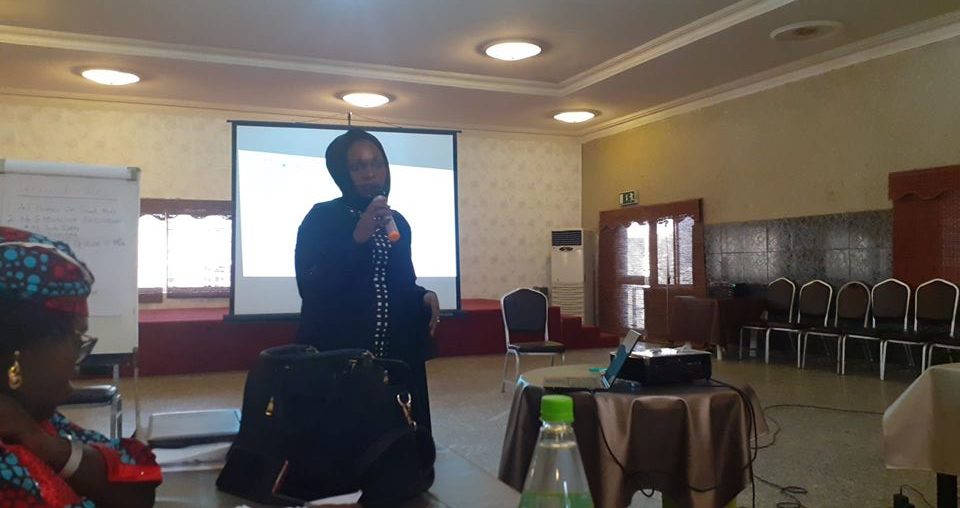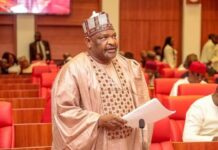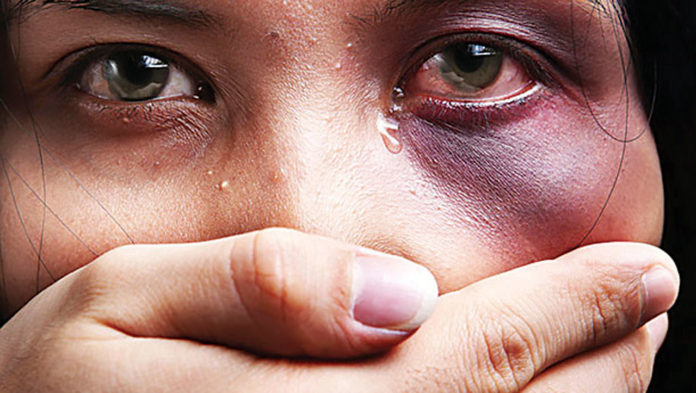By Ndidichukwu Odoh
28 years old Jane Ogidi married her husband at the age of 22, when she graduated from the University. As an under graduate, Jane aspired to be one of the leading women in Nigeria. She had the big dream of being an accountant.
“I loved accounts, I will not lie to you I was good at counting figures, I graduated as one of the best during the university days” Jane recalled in a nostalgic feeling of the past she is fighting to get back.
As a bright young lady during her youth service in Abuja, Jane met Mike Ogidi, her husband, whom she recounted was excited and thrilled at her intelligence and dedication to work in her place of primary assignment.
Jane’s relationship with Mike swiftly became intimate, months later Jane was pregnant. In order to avoid being shamed by the society and her friends, they got married.
Few months into the marriage and before their baby was born, Mike became paranoid at everything Jane did.
“The first time I tried to talk to him about our relationship and why his attitude towards me changed, he told me I forced myself into his life and he is not happy living with me” Jane recounted.
Three years into their marriage, Mike’s unfriendly and inaccessible love to Jane worsened to the extent that their children were affected.
“it was so bad that I was happy when he travels and had to stay for weeks, without even giving us feeding allowance, my heart will feel a sense of peace once again, I always looked forward to the days he travels, even though he stopped me from working” she narrated.
Verbal abusive words were normal to Jane, she said, “He calls me witch, prostitute, and tells me how much he regrets marrying me, to me those words became normal, I lost myself confidence”.
On the days Jane met help, she had confronted Mike, she told the story that; “I faced him and responded, I got badly beaten, I went home to my parents, but they asked me to return to my husband because no one has ever left her husband’s house in our family’s history”
Jane went to her friend in school-Nkechi- a practicing lawyer, who reported to the authorities and arrested Mike, he was prosecuted with a jail term of one year, while Jane filed and got a divorce.
In Nigeria, the 2018 National Demographic Health Survey (NDHS), suggests that 31% of women have ever experienced physical violence since age 15. In the past year, 14% of women have experienced physical violence. By state, women’s experience of physical violence since age 15 is lowest in Jigawa (4%) and highest in Taraba (68%).
The most common perpetrator of physical violence against ever-married women is a current husband/partner (58%). Among never married women, the most common perpetrator is the mother/ step-mother (35%) (NDHS 2018).
“WHAT WILL PEOPLE SAY”
According to Mrs. Chika Obiechina Director of Always Sisters Foundation, “what will people say” is the reason why most Nigerian women being abused would choose to stay with their husbands, she said women do not often speak up when they are abused because of fear of losing their marriage
“Violence against women cuts across different ethnic societies and religion in Nigeria, many women have been beaten to death or disfigured permanently because they did not leave the abusive marriage or report cases of abuse the first time it was done to them”
“our advocacy is a multi-sectoral approach, we are speaking to the authorities, to have stern penalties for those found culpable, but for that to be effective, the women have to speak up and know when the seek help” Obiechina said
More than 1 in 4 women (28%) and 21% of men agree that a husband is justified in beating his wife for at least one of the following reasons: if she burns the food, argues with him, goes out without telling him, neglects the children, or refuses to have sex with him (NDHS 2018)
Findings of the NDHS 2018 also suggests that in Nigeria, Women are more likely to agree that wife beating is justified if the wife neglects the children (21%) or goes out without telling him (21%). Men are more likely to agree that wife beating is justified if the wife argues with him (13%).
GBV poses a fundamental barrier to the equal participation of women and men in social, economic, and political spheres, it affects women and men but women are much more vulnerable because violence reflects and reinforces existing gender inequalities.
Like Jane, Many Nigerian woman are victims of physical, sexual, or psychological harm or suffering in form of coercion and arbritrary derivation of liberty both in the private lives and relationship and public spheres.
In efforts to end all forms of violence against women and girls, the EU-UN Spotlight Initiative projects is working in Nigeria to ensure that all women live a life free of violence by influencing improved legislative and policy framework. The Initiative engages policy makers in evidence based advocacy to ensure Nigeria aligns such programs to international standards.

“we want to promote public legal literacy and awareness about existing laws and policies on Violence against women and Girls (VAWG) and Sexual Reproductive Health Rights (SRHR) by increasing interest and support of traditional, community and religious leaders, media, and education sector, to speak on these issues that affect women and girls” said Hadiza Dorayi, Coordinator EU-UN Spotlight Initiative in Nigeria.
According to Dorayi, Strengthening the institutions, legal frameworks implementation and community interest are strategies Nigeria needs to promote positive gender-equitable norms, attitudes and behaviors
There is an urgent need for interventions to focus on improving the gender-based violence policy environment at national and state levels, to protect women like Jane and ensure their voice is heard.



























